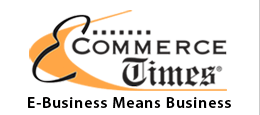Refusing to Accept Change
It continues to amaze me that there are software industry executives who are still living in denial about the rapidly expanding Software-as-a-Service (SaaS) movement.
The latest example is Lawson Software’s CEO, Harry Debes, who was recently quoted in a ZDnet interview as saying the SaaS market will collapse in the next two years.
This interview generated plenty of response and numerous messages in my inbox yesterday. I particularly liked the blog entry of Daniel Druker, SVP Marketing and Business Development at Intacct.
Debes’ interview follows a series of other recent commentaries suggesting that on-demand SaaS solutions and a widening array of cloud computing services aren’t a viable alternative to traditional, on-premise software applications and computing systems.
The nasayers are all entitled to their opinions, but Debes’ views are particularly disheartening.
He starts by discounting SaaS as just “something I’ve lived through three times in my career now. The first time, it was called “service bureaus”. The second time, it was “application service providers”, and now it’s called SaaS.”
While he’s right that SaaS is an extension of a longstanding idea, he fails to recognize that today’s technologies, starting with broadband networking, make SaaS more economically viable than its previous iterations; or how the dramatically different economic, competitive and even ecological climate makes leveraging software services even more necessary than ever before. But most importantly, Debes refuses to see how the SaaS movement is being fuelled by genuine customer demand and is experiencing accelerated growth because of widespread customer satisfaction with the business benefits of SaaS.
Debes is honest enough to admit he doesn’t like SaaS because it places too much of the burden on the software vendor, “Whereas traditional software is like cocaine–you’re hooked. It’s too difficult and expensive to switch providers once you’ve invested in one. If it were easier to jump ship, a lot of people would’ve hit the eject button on SAP a long time ago.”
He proves that he hasn’t done his homework when he claims, “The [SaaS] hype is based on one company in the software industry having modest success. Salesforce.com just has average to below-average profitability.”
The truth is that there are many successful (i.e., profitable) SaaS companies. Salesforce.com is experiencing exponential growth, achieving unprecedented customer satisfaction ratings and reports limited profits only because it is seeking to win market share and could easily generate greater profits if it wanted to accept slower growth.
However, I agree with him on one very important point when he says, “The success of Salesforce.com, in my opinion, has to do with their product being good, not because it’s SaaS.”
But, Debes is also arrogant enough to even admit that he thinks, “People are stupid.”
The world is littered with arrogant business (and political) leaders who refuse to recognize change or listen to the people around them.
In the Boston area alone, I can rattle off the names of many technology companies that have disappeared because their corporate leaders turned a blind eye to the fundamental industry changes that would eventual sweep them away. The most obvious examples are Digital Equipment Corporation and Wang Computer who dismissed the potential impact of the PC.
The lesson is that corporate executives who refuse to pay attention to fundamental market changes will pay a severe price.




